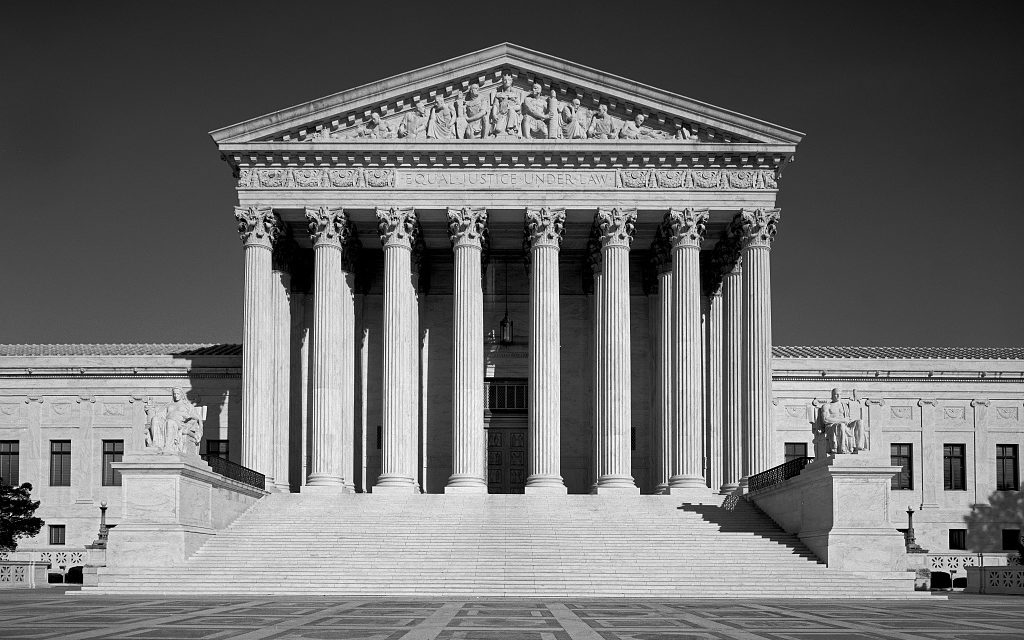Nine African-American pro-life leaders have filed an amicus brief with the Supreme Court informing the justices about the racist history of abortion.
The brief was filed in support of a Louisiana law which requires abortionists to obtain admitting privileges at a hospital within 30 miles of their clinic. The law was upheld by the Fifth Circuit Court of Appeals but will be challenged again at the Supreme Court on March 4th in June Medical Services v. Gee. The Daily Citizen has previously reported on this case.
Some of the signatories to the brief include: Dr. Alveda King, niece of Martin Luther King Jr. and the executive director of Civil Rights for The Unborn; Dean Nelson, chairman of The Douglass Leadership Institute; and Day Gardner, president of The National Black Pro-Life Union.
Starting off with a bang, the brief states, “The struggle for racial equality is not over. The black community experiences a disproportionate share of abortions, often from doctors that do not have the same credentials as those who perform other forms of surgery.”
One of the arguments made by the brief is that the admitting privilege requirement of the Louisiana law promotes racial equality. “Louisiana’s population is 32.7 percent black, but black women obtained 61.2 percent of the abortions performed in Louisiana in 2018. This disproportionate abortion rate approaches what some civil rights leaders have called ‘race suicide.’ Indeed, famed African-American voting rights and anti-poverty activist Fannie Lou Hamer denounced abortion as ‘genocide.’”
The brief goes on the make a powerful case for increased health and safety regulations on abortion clinics. It recalls the grotesque conditions that some clinics are in and relays the sad stories of numerous black women who have died due to complications from an abortion. These women may have been saved if abortion clinics were required to obtain hospital admitting privileges, like the Louisiana law requires.
In a study, the Life Issues Institute found that “79 percent of abortion-offering Planned Parenthood facilities are within walking distance of black or Hispanic neighborhoods and 62 percent are near black neighborhoods.” And in New York City, a preborn black baby is more likely to be aborted than born.
Though pro-choice advocates argue that abortion restrictions are racist, the opposite is true. By targeting low-income and predominantly African-American communities, abortion clinics kill black babies at a disproportionate rate compared with other races. Abortion is an effective means of eugenics.
In another recent abortion case that ended up at the Supreme Court, Justice Clarence Thomas also highlighted the racist potential of abortion. In a concurring opinion, he wrote, “The use of abortion to achieve eugenic goals is not merely hypothetical. The foundations for legalizing abortion in America were laid during the early 20th-century birth-control movement. That movement developed alongside the American eugenics movement. And significantly, Planned Parenthood founder Margaret Sanger recognized the eugenic potential of her cause.”
So-called comedian Michelle Wolf’s contended that her abortion made her feel like “God.” But as the brief demonstrates, abortion is not the good, empowering thing that some pro-choice advocates make it out to be.
Please be in prayer that the Supreme Court would uphold Louisiana’s hospital admitting privileges requirement in its upcoming case and pray that God would move powerfully in our nation to bring about the end of abortion.
Additional Information:
Over 200 Members of Congress Urge Supreme Court to Overrule Roe v. Wade
Supreme Court Takes Up Louisiana Abortion Law; What’s at Stake?
Additional Resources:
Join Focus on the Family and the March for Life on January 24th, 2020
How to Help a Friend Who Wants an Abortion
You can follow this author on Twitter @MettlerZachary






